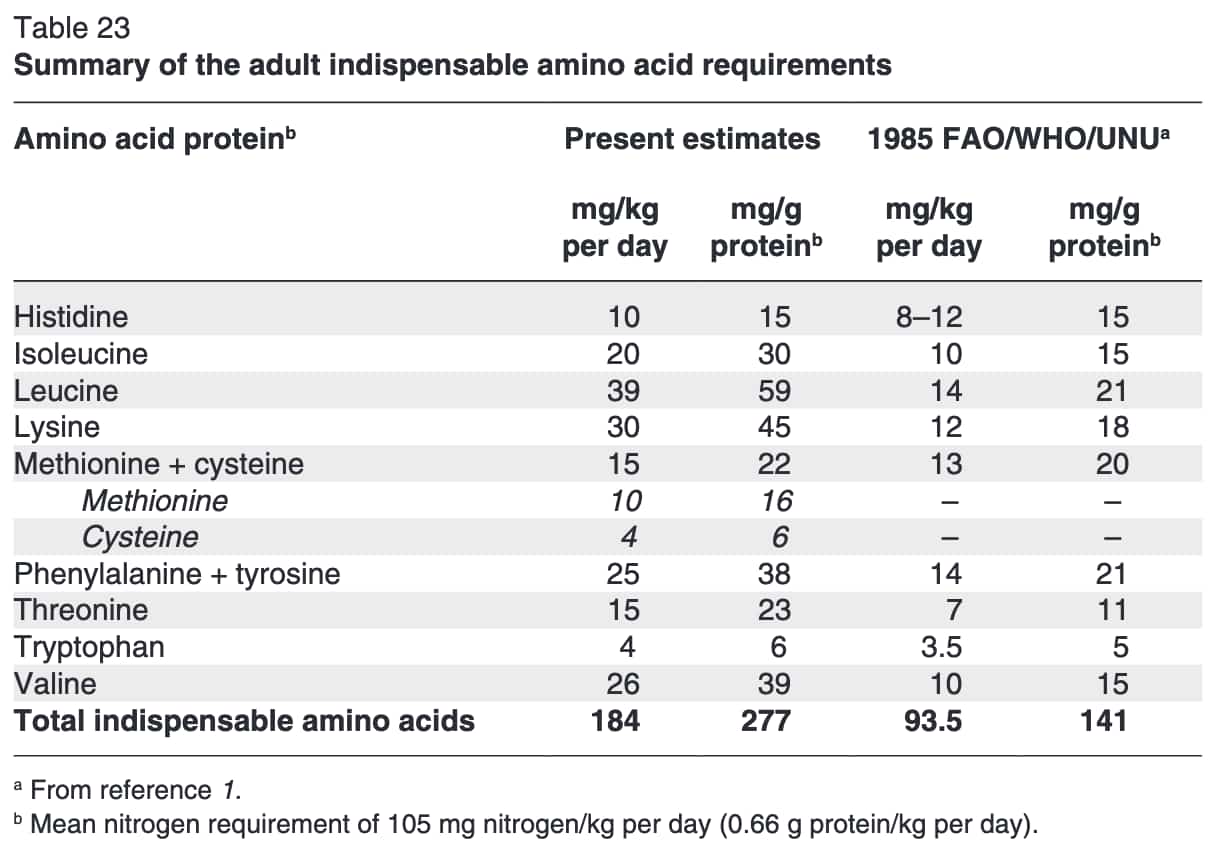16 Complete Protein Pairings with Pecan
Summary:
- Pecan is low in protein - about 10 grams per cup.
- In addition, pecan provides only 8 of the 9 essential amino acids sufficiently - it is a little low on lysine.[1]
- Pecan pairs well with cauliflower, carrots, crimini mushroom, nutritional yeast or mango to create a complete protein profile. [2] More pecan pairings and detailed analysis below.
A complete protein is a protein source that "contains adequate proportions of the nine essential amino acids" that our body can not produce on its own.
We analyzed the amino acid composition of pecan, and found both vegan and vegetarian pairings with pecan that creates a complete protein profile. Read on to discover new combinations of foods to enjoy!
Details on how we calculate complete protein profiles.
Amount of Protein in Pecan
Relatively low in protein, a single cup of pecan contains 10 grams of protein, or about 20% of recommended daily values. [1]
To get the adequate amount of protein with pecan alone, you will need 5 cups of pecan (550 grams) for an average female, or 6 cups of pecan for males. [4] That's over 3770 calories. Pairing pecan with a richer protein source is a good idea.
Full nutritional profile for pecan
USDA Source: Nuts, pecans
Macronutrients in 1 cup (109g) of pecan:
| % of RDV | Amount | ||
| Calories |
|
37.7% | 753 kCal |
| Carbohydrates |
|
0% | - |
| Total fat |
|
122.6% | 78.4 grams |
| Protein |
|
20% | 10 grams |
Essential Amino Acids in Pecan
Proportionally, pecan does contain abundant amounts of 8 out of the nine essential amino acids. However, pecan is a little short on lysine.[1]
To have adequate amounts of all nine essential amino acids with pecan alone, you will have to eat 5.5 cups of pecan (596 grams) for an average person. [2]
That's about 8% more pecan to compensate for the lack of lysine, compared to the protein requirement alone.
The amount of each essential amino acid in 1 cup (109g) of pecan:
| Amino Acid | % of RDV [2] | Amount [1] |
Complete / Adequate |
|
| Protein |
|
20% | 9.995g | |
| Histidine |
|
45.3% | 0.286g | |
| Isoleucine |
|
42.6% | 0.366g | |
| Leucine |
|
34.5% | 0.652g | |
| Lysine |
|
18.3% | 0.313g | |
| Methionine |
|
23.2% | 0.199g | |
| Phenylalanine |
|
31.2% | 0.464g | |
| Threonine |
|
37.1% | 0.334g | |
| Tryptophan |
|
39% | 0.101g | |
| Valine |
|
41.5% | 0.448g |
More Complete Protein with Pecan
- Cauliflower
- Carrots
- Crimini Mushroom
- Nutritional Yeast
- Mango
- Pumpkin Seeds
- Dijon Mustard
- Yellow Mustard
- Black Beans
- Kidney Beans
- Mung Bean
- White Beans
Vegan 1. Cauliflower and Pecan
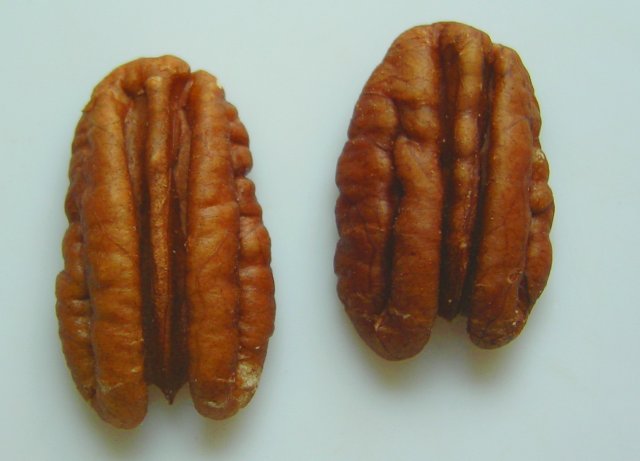
Low in protein, cauliflower is high in lysine, which is complementary to pecan.
A ratio of 0.9 cup of pecan (99g) and 0.1 head of cauliflower (96g) creates a complete protein profile. The entire range to create a complete protein are ratios of 1:1 to 1:0.47 for pecan to cauliflower by weight.
Full nutritional profile for cauliflower
USDA Source: Cauliflower, raw
| Amino Acid | % of RDV [2] | Amount [5] |
Complete / Adequate |
|
| Protein |
|
21.9% | 10.9g | |
| Histidine |
|
49.8% | 0.31g | |
| Isoleucine |
|
46.7% | 0.4g | |
| Leucine |
|
36.8% | 0.69g | |
| Lysine |
|
28.9% | 0.49g | |
| Methionine |
|
23.3% | 0.2g | |
| Phenylalanine |
|
32.5% | 0.48g | |
| Threonine |
|
41.8% | 0.38g | |
| Tryptophan |
|
42.8% | 0.11g | |
| Valine |
|
48.9% | 0.53g |
Vegan 2. Carrots and Pecan


Carrot is low in protein, and is high in lysine, complementing the profile of pecan.
For example, 0.6 cup of pecan (61g) and 1.8 carrots (130g) make a complete amino acids profile. In fact, any ratio of more than 2.1:1 of carrot to pecan will be complete.
Full nutritional profile for carrots
USDA Source: Carrots, raw
| Amino Acid | % of RDV [2] | Amount [6] |
Complete / Adequate |
|
| Protein |
|
13.5% | 6.8g | |
| Histidine |
|
33.4% | 0.21g | |
| Isoleucine |
|
35.3% | 0.3g | |
| Leucine |
|
26.2% | 0.49g | |
| Lysine |
|
17.8% | 0.31g | |
| Methionine |
|
15.9% | 0.14g | |
| Phenylalanine |
|
22.6% | 0.34g | |
| Threonine |
|
48.2% | 0.43g | |
| Tryptophan |
|
27.7% | 0.07g | |
| Valine |
|
31.3% | 0.34g |
Vegan 3. Crimini Mushroom and Pecan


A reasonable source of supplementary protein, crimini mushroom is high in lysine, which is complementary to pecan.
A ratio of 0.8 cup of pecan (84g) and 0.9 cup of crimini mushroom (76g) creates a complete protein profile. In fact, any ratio of more than 0.9:1 of crimini mushroom to pecan will be complete.
Full nutritional profile for crimini mushroom
USDA Source: Mushrooms, brown, italian, or crimini, raw
| Amino Acid | % of RDV [2] | Amount [7] |
Complete / Adequate |
|
| Protein |
|
19.2% | 9.6g | |
| Histidine |
|
43% | 0.27g | |
| Isoleucine |
|
41.5% | 0.36g | |
| Leucine |
|
32.7% | 0.62g | |
| Lysine |
|
25.3% | 0.43g | |
| Methionine |
|
22.1% | 0.19g | |
| Phenylalanine |
|
28.9% | 0.43g | |
| Threonine |
|
38.1% | 0.34g | |
| Tryptophan |
|
46.4% | 0.12g | |
| Valine |
|
40% | 0.43g |
Vegan 4. Nutritional Yeast and Pecan


Nutritional yeast is a great source of protein, and is high in lysine, complementing the profile of pecan.
For example, 0.8 cup of pecan (84g) and 0.6 tablespoon of nutritional yeast (7g) make a complete amino acids profile. The entire range to create a complete protein are ratios of 1:0.09 to 1:0.7 for pecan to nutritional yeast by weight.
Full nutritional profile for nutritional yeast
USDA Source: Leavening agents, yeast, baker's, active dry
| Amino Acid | % of RDV [2] | Amount [8] |
Complete / Adequate |
|
| Protein |
|
21.3% | 10.6g | |
| Histidine |
|
45.4% | 0.29g | |
| Isoleucine |
|
48.8% | 0.42g | |
| Leucine |
|
37.8% | 0.71g | |
| Lysine |
|
28.1% | 0.48g | |
| Methionine |
|
22.8% | 0.2g | |
| Phenylalanine |
|
32.5% | 0.48g | |
| Threonine |
|
44.6% | 0.4g | |
| Tryptophan |
|
45.2% | 0.12g | |
| Valine |
|
47.5% | 0.51g |
Vegan 5. Mango and Pecan


Low in protein, mango is high in lysine, which is complementary to pecan.
A ratio of 0.8 cup of pecan (84g) and 1.1 mango (366g) creates a complete protein profile. The entire range to create a complete protein are ratios of 1:4 to 1:13 for pecan to mango by weight.
Full nutritional profile for mango
USDA Source: Mangos, raw
| Amino Acid | % of RDV [2] | Amount [9] |
Complete / Adequate |
|
| Protein |
|
21.4% | 10.7g | |
| Histidine |
|
45.9% | 0.29g | |
| Isoleucine |
|
45.1% | 0.39g | |
| Leucine |
|
36.2% | 0.68g | |
| Lysine |
|
28.2% | 0.48g | |
| Methionine |
|
21.3% | 0.18g | |
| Phenylalanine |
|
30.6% | 0.46g | |
| Threonine |
|
41.1% | 0.37g | |
| Tryptophan |
|
48.3% | 0.13g | |
| Valine |
|
46.1% | 0.5g |
Vegan 6. Pumpkin Seeds and Pecan


Pumpkin seed is a reasonable source of supplementary protein, and is high in lysine, complementing the profile of pecan.
For example, 0.6 cup of pecan (68g) and 3.9 tablespoons of pumpkin seeds (16g) make a complete amino acids profile. In fact, any ratio of more than 0.23:1 of pumpkin seed to pecan will be complete.
Full nutritional profile for pumpkin seeds
USDA Source: Seeds, pumpkin and squash seeds, whole, roasted, without salt
| Amino Acid | % of RDV [2] | Amount [10] |
Complete / Adequate |
|
| Protein |
|
18.3% | 9.2g | |
| Histidine |
|
41.2% | 0.26g | |
| Isoleucine |
|
44% | 0.38g | |
| Leucine |
|
34.6% | 0.65g | |
| Lysine |
|
24.2% | 0.41g | |
| Methionine |
|
22.1% | 0.19g | |
| Phenylalanine |
|
29.2% | 0.44g | |
| Threonine |
|
35.1% | 0.32g | |
| Tryptophan |
|
44.1% | 0.11g | |
| Valine |
|
47.6% | 0.51g |
Vegan 7. Dijon Mustard and Pecan


A great source of protein, dijon mustard is high in lysine, which is complementary to pecan.
A ratio of 0.7 cup of pecan (73g) and 2.3 tablespoons of dijon mustard (14g) creates a complete protein profile. In fact, any ratio of more than 0.19:1 of dijon mustard to pecan will be complete.
Full nutritional profile for dijon mustard
USDA Source: Spices, mustard seed, ground
| Amino Acid | % of RDV [2] | Amount [11] |
Complete / Adequate |
|
| Protein |
|
20.5% | 10.3g | |
| Histidine |
|
49.4% | 0.31g | |
| Isoleucine |
|
47.3% | 0.41g | |
| Leucine |
|
38.1% | 0.72g | |
| Lysine |
|
27% | 0.46g | |
| Methionine |
|
23.2% | 0.2g | |
| Phenylalanine |
|
31.6% | 0.47g | |
| Threonine |
|
37.5% | 0.34g | |
| Tryptophan |
|
39.5% | 0.1g | |
| Valine |
|
46.9% | 0.51g |
Vegan 8. Yellow Mustard and Pecan


Yellow mustard is a reasonable source of supplementary protein, and is high in lysine, complementing the profile of pecan.
For example, 0.7 cup of pecan (73g) and 6.4 tablespoons of yellow mustard (96g) make a complete amino acids profile. The entire range to create a complete protein are ratios of 1:1.3 to 1:41 for pecan to yellow mustard by weight.
Full nutritional profile for yellow mustard
USDA Source: Mustard, prepared, yellow
| Amino Acid | % of RDV [2] | Amount [12] |
Complete / Adequate |
|
| Protein |
|
20.5% | 10.3g | |
| Histidine |
|
48.4% | 0.3g | |
| Isoleucine |
|
44.7% | 0.38g | |
| Leucine |
|
37.9% | 0.72g | |
| Lysine |
|
27.1% | 0.46g | |
| Methionine |
|
24% | 0.21g | |
| Phenylalanine |
|
31.2% | 0.46g | |
| Threonine |
|
42.6% | 0.38g | |
| Tryptophan |
|
29.3% | 0.08g | |
| Valine |
|
44.5% | 0.48g |
Vegan 9. Black Beans and Pecan
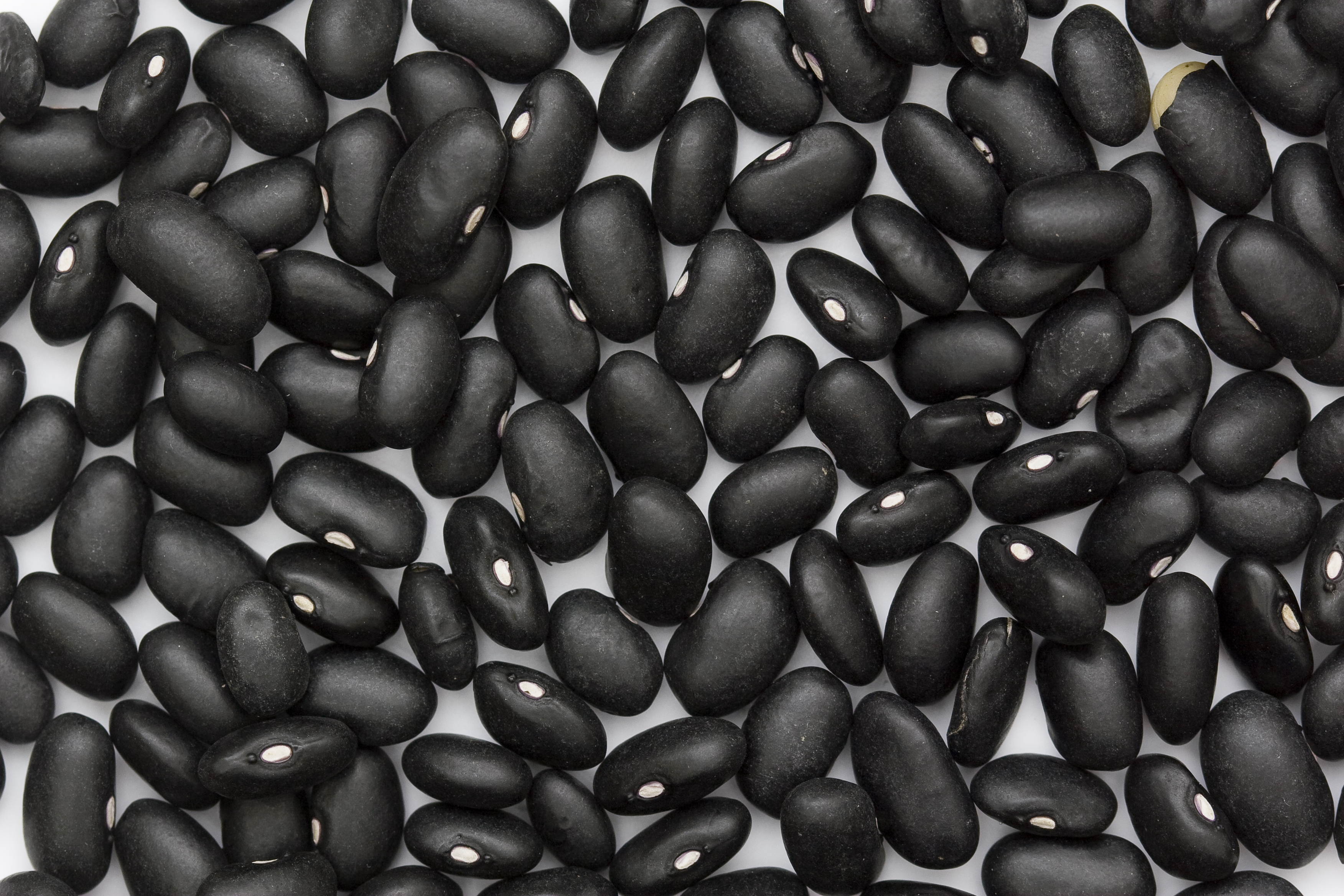

A reasonable source of supplementary protein, black bean is high in lysine, which is complementary to pecan.
A ratio of 0.7 cup of pecan (73g) and 0.3 cup of black beans (61g) creates a complete protein profile. The entire range to create a complete protein are ratios of 1:0.8 to 1:1.2 for pecan to black bean by weight.
Full nutritional profile for black beans
USDA Source: Beans, black turtle, mature seeds, canned
| Amino Acid | % of RDV [2] | Amount [13] |
Complete / Adequate |
|
| Protein |
|
20.7% | 10.4g | |
| Histidine |
|
46.3% | 0.29g | |
| Isoleucine |
|
48.7% | 0.42g | |
| Leucine |
|
39.6% | 0.75g | |
| Lysine |
|
27.3% | 0.47g | |
| Methionine |
|
21.1% | 0.18g | |
| Phenylalanine |
|
35.4% | 0.53g | |
| Threonine |
|
39.8% | 0.36g | |
| Tryptophan |
|
42.9% | 0.11g | |
| Valine |
|
47.4% | 0.51g |
Vegan 10. Kidney Beans and Pecan


Kidney bean is a reasonable source of supplementary protein, and is high in lysine, complementing the profile of pecan.
For example, 0.7 cup of pecan (73g) and 0.3 cup of kidney beans (45g) make a complete amino acids profile. The entire range to create a complete protein are ratios of 1:0.6 to 1:1 for pecan to kidney bean by weight.
Full nutritional profile for kidney beans
USDA Source: Beans, kidney, red, mature seeds, canned, drained solids, rinsed in tap water
| Amino Acid | % of RDV [2] | Amount [14] |
Complete / Adequate |
|
| Protein |
|
20.7% | 10.4g | |
| Histidine |
|
46.3% | 0.29g | |
| Isoleucine |
|
48.7% | 0.42g | |
| Leucine |
|
39.6% | 0.75g | |
| Lysine |
|
27.3% | 0.47g | |
| Methionine |
|
21.1% | 0.18g | |
| Phenylalanine |
|
35.4% | 0.53g | |
| Threonine |
|
39.7% | 0.36g | |
| Tryptophan |
|
42.9% | 0.11g | |
| Valine |
|
47.3% | 0.51g |
Vegan 11. Mung Bean and Pecan
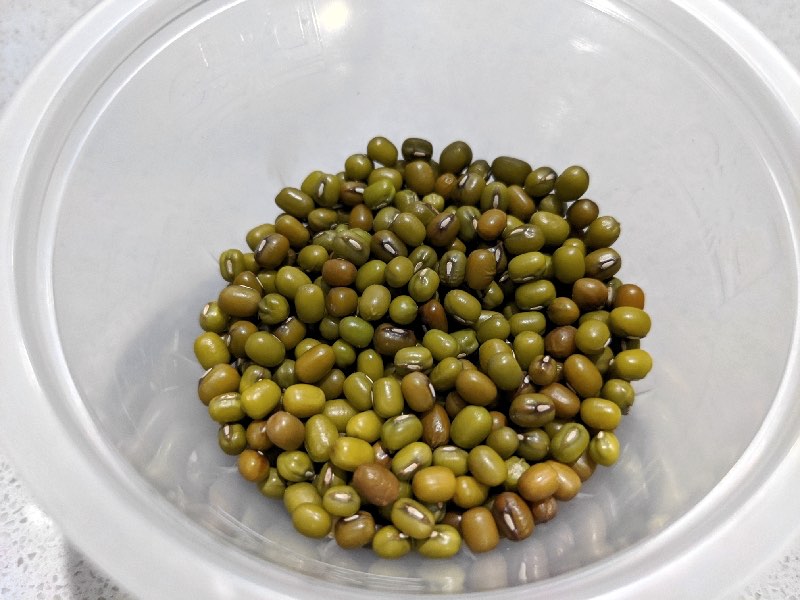

A great source of protein, mung bean is high in lysine, which is complementary to pecan.
A ratio of 0.7 cup of pecan (73g) and 1.2 tablespoons of mung bean (16g) creates a complete protein profile. The entire range to create a complete protein are ratios of 1:0.22 to 1:0.06 for pecan to mung bean by weight.
Full nutritional profile for mung bean
USDA Source: Mung beans, mature seeds, raw
| Amino Acid | % of RDV [2] | Amount [15] |
Complete / Adequate |
|
| Protein |
|
20.8% | 10.4g | |
| Histidine |
|
47.5% | 0.3g | |
| Isoleucine |
|
46.7% | 0.4g | |
| Leucine |
|
38.3% | 0.72g | |
| Lysine |
|
27.4% | 0.47g | |
| Methionine |
|
20.7% | 0.18g | |
| Phenylalanine |
|
35.9% | 0.54g | |
| Threonine |
|
38.3% | 0.34g | |
| Tryptophan |
|
41.6% | 0.11g | |
| Valine |
|
45.6% | 0.49g |
Vegan 12. White Beans and Pecan
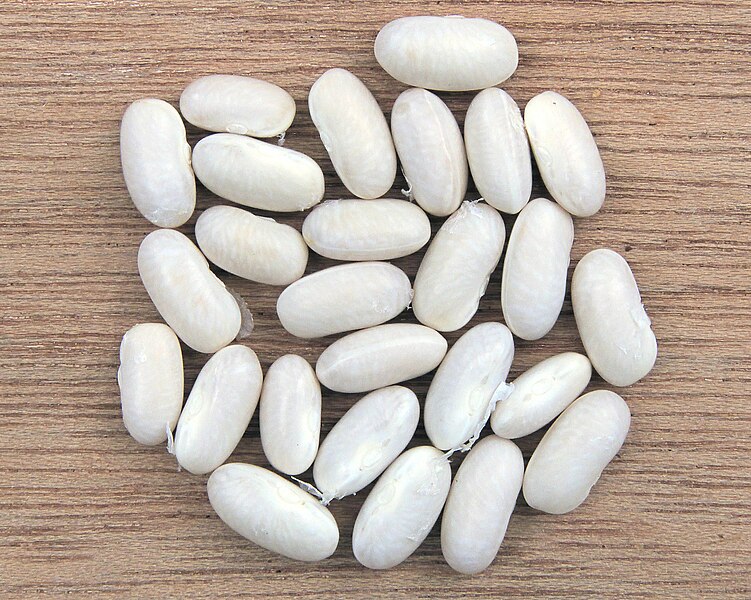

White bean is a reasonable source of supplementary protein, and is high in lysine, complementing the profile of pecan.
For example, 0.7 cup of pecan (73g) and 3.3 tablespoons of white beans (54g) make a complete amino acids profile. The entire range to create a complete protein are ratios of 1:0.7 to 1:2.3 for pecan to white bean by weight.
Full nutritional profile for white beans
USDA Source: Beans, white, mature seeds, canned
| Amino Acid | % of RDV [2] | Amount [16] |
Complete / Adequate |
|
| Protein |
|
21.1% | 10.6g | |
| Histidine |
|
47.5% | 0.3g | |
| Isoleucine |
|
48.4% | 0.42g | |
| Leucine |
|
39.5% | 0.75g | |
| Lysine |
|
27.9% | 0.48g | |
| Methionine |
|
22.3% | 0.19g | |
| Phenylalanine |
|
34.9% | 0.52g | |
| Threonine |
|
42.9% | 0.39g | |
| Tryptophan |
|
43.7% | 0.11g | |
| Valine |
|
46.6% | 0.5g |
Vegetarian 13. Sour Cream and Pecan


A reasonable source of supplementary protein, sour cream is high in lysine, which is complementary to pecan.
A ratio of 0.8 cup of pecan (91g) and 0.4 cup of sour cream (70g) creates a complete protein profile. In fact, any ratio of more than 0.8:1 of sour cream to pecan will be complete.
Full nutritional profile for sour cream
USDA Source: Cream, sour, cultured
| Amino Acid | % of RDV [2] | Amount [17] |
Complete / Adequate |
|
| Protein |
|
20.1% | 10g | |
| Histidine |
|
48% | 0.3g | |
| Isoleucine |
|
48.7% | 0.42g | |
| Leucine |
|
40.6% | 0.77g | |
| Lysine |
|
26.5% | 0.45g | |
| Methionine |
|
25.7% | 0.22g | |
| Phenylalanine |
|
33.3% | 0.5g | |
| Threonine |
|
41.9% | 0.38g | |
| Tryptophan |
|
43.8% | 0.11g | |
| Valine |
|
47.2% | 0.51g |
Vegetarian 14. Caramel and Pecan


Caramel is low in protein, and is high in lysine, complementing the profile of pecan.
For example, 0.7 cup of pecan (78g) and 0.5 cup of caramel (158g) make a complete amino acids profile. The entire range to create a complete protein are ratios of 1:2 to 1:5 for pecan to caramel by weight.
Full nutritional profile for caramel
USDA Source: Toppings, butterscotch or caramel
| Amino Acid | % of RDV [2] | Amount [18] |
Complete / Adequate |
|
| Protein |
|
18.1% | 9.1g | |
| Histidine |
|
42.4% | 0.27g | |
| Isoleucine |
|
46.8% | 0.4g | |
| Leucine |
|
36.7% | 0.69g | |
| Lysine |
|
23.9% | 0.41g | |
| Methionine |
|
23.4% | 0.2g | |
| Phenylalanine |
|
29.8% | 0.44g | |
| Threonine |
|
38% | 0.34g | |
| Tryptophan |
|
27.8% | 0.07g | |
| Valine |
|
44% | 0.47g |
Vegetarian 15. Yogurt and Pecan
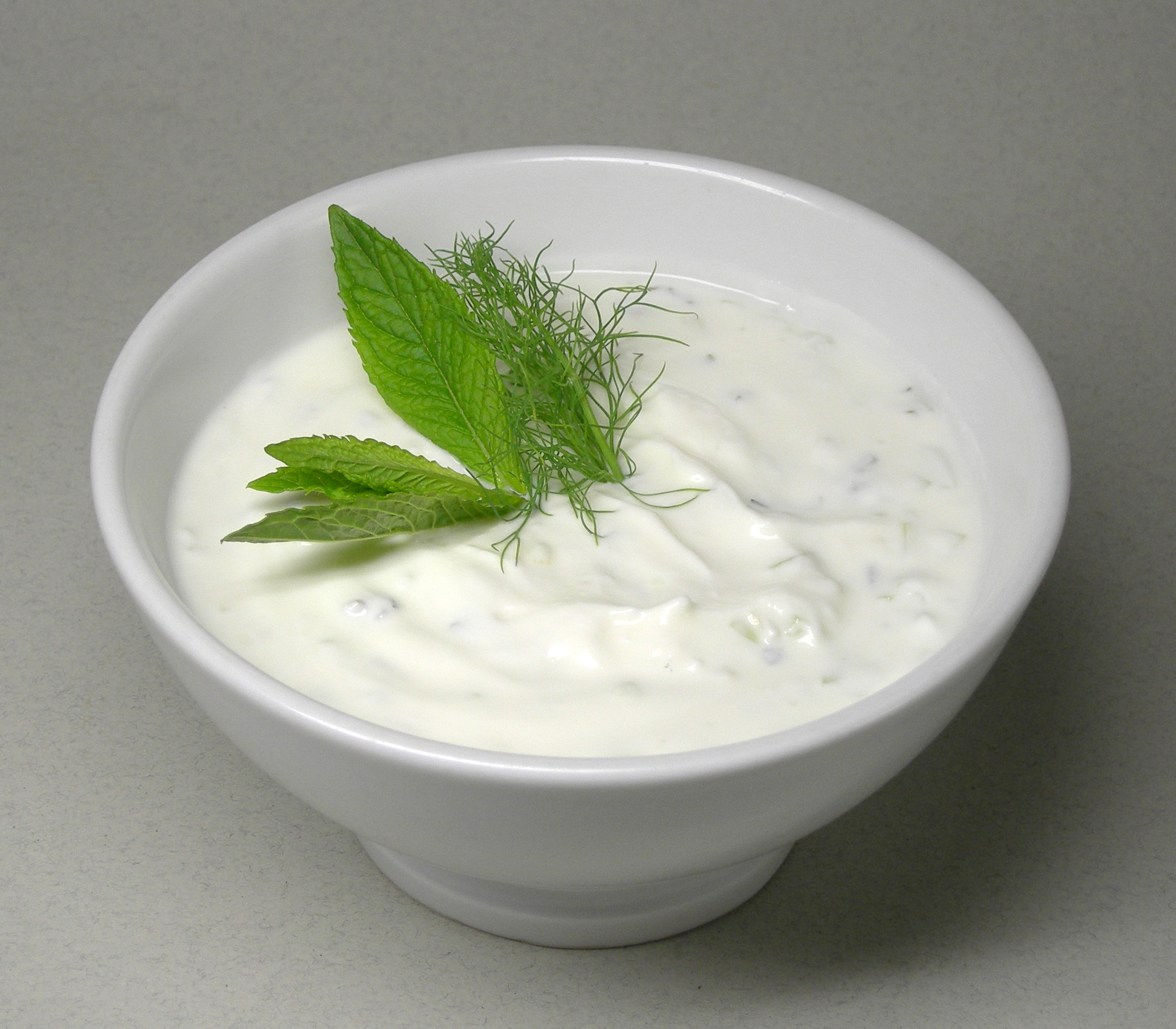

A reasonable source of supplementary protein, yogurt is high in lysine, which is complementary to pecan.
A ratio of 0.7 cup of pecan (78g) and 0.3 cup of yogurt (64g) creates a complete protein profile. The entire range to create a complete protein are ratios of 1:0.8 to 1:28 for pecan to yogurt by weight.
Full nutritional profile for yogurt
USDA Source: Yogurt, plain, whole milk
| Amino Acid | % of RDV [2] | Amount [19] |
Complete / Adequate |
|
| Protein |
|
18.7% | 9.4g | |
| Histidine |
|
41.1% | 0.26g | |
| Isoleucine |
|
44.5% | 0.38g | |
| Leucine |
|
36.5% | 0.69g | |
| Lysine |
|
24.7% | 0.42g | |
| Methionine |
|
24.1% | 0.21g | |
| Phenylalanine |
|
30.4% | 0.45g | |
| Threonine |
|
36.5% | 0.33g | |
| Tryptophan |
|
32.8% | 0.09g | |
| Valine |
|
46.6% | 0.5g |
Vegetarian 16. Milk and Pecan


Milk is a reasonable source of supplementary protein, and is high in lysine, complementing the profile of pecan.
For example, 0.8 cup of pecan (84g) and 0.3 cup of milk (84g) make a complete amino acids profile. In fact, any ratio of more than 1:1 of milk to pecan will be complete.
Full nutritional profile for milk
USDA Source: Milk, reduced fat, fluid, 2% milkfat, with added vitamin A and vitamin D
| Amino Acid | % of RDV [2] | Amount [20] |
Complete / Adequate |
|
| Protein |
|
20.9% | 10.4g | |
| Histidine |
|
48.1% | 0.3g | |
| Isoleucine |
|
49.4% | 0.42g | |
| Leucine |
|
40.4% | 0.76g | |
| Lysine |
|
27.5% | 0.47g | |
| Methionine |
|
26.3% | 0.23g | |
| Phenylalanine |
|
33.6% | 0.5g | |
| Threonine |
|
41.6% | 0.37g | |
| Tryptophan |
|
43.5% | 0.11g | |
| Valine |
|
48.6% | 0.53g |
